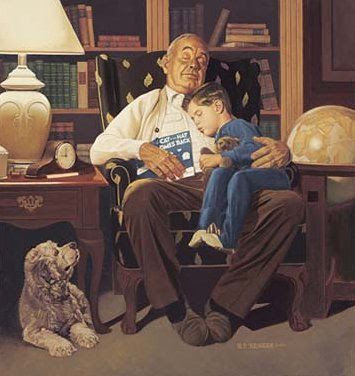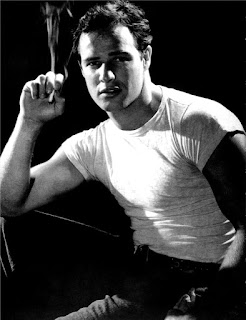Syllable that
is what it is all about.
A syllable is
a unit of pronunciation having one vowel sound, with or without surrounding
consonants, forming the whole or a part of a word; e.g., there are two
syllables in water and three in inferno.
What does this
have to do with all the price of tea in China? The syllable is the cause of all
our stress and tension of the past year. It is that simple.
I wake every
morning to the sound of the radio and from 5AM on to the news and the news
tells me over and over again a one-syllable word. It is actually a name. The
one-syllable name is repeated again and again and has been for over a year and
I’m tired of hearing it but it won’t go away.
Trump, Trump, Trump, Trump, Trump…...
You get the idea.
It is in every magazine, newspaper, television and radio show. There is no way
to get away from it.
Trump, Trump, Trump, Trump, Trump…...
It is not a
bad word or hard to say. It is one-syllable like ‘door’ or ‘home’ or ‘dog’ or
‘wife’ or ‘car’; words we use everyday without causing any problems. So why
does this word cause so much anxiety?
Trump, Trump, Trump, Trump, Trump…...
Trump didn’t
need any advertising because he was already a television celebrity and a
household name. When he said he would run for president, everyone guffawed for
how would this media mogul transform into the position of the most powerful
figure on the planet?
Trump, Trump, Trump, Trump, Trump…...
Yet he did it
and the news media found him as astonishing as the public so he upped his brand
without a campaign mission or vision to game plan much to the benighted
marketing folks.
Trump, Trump, Trump, Trump, Trump…...
It is like gum
stuck to your shoe.
Trump, Trump, Trump, Trump, Trump…...
And NOW he IS
president!
Trump, Trump, Trump, Trump, Trump…...
But the media
is still crying out.
Trump, Trump, Trump, Trump, Trump…...
Instead of
President Trump or Mister President or even Donald Trump. It is all that
one-syllable word pounding my brain like Pavlov’s Dog.
Trump, Trump, Trump, Trump, Trump…...
So I did a
history research study to find the other presidents with a one-syllable name.
Here is what I found.
Polk, or ‘Ole Hickory’ had his hands
full during the great Irish potato famine that brought starving immigrants to
the U.S., the Mormons migrated to Utah, he declared war on Mexico, the Smithsonian
Institute was established, ‘Declaration of Sentiments’ women’s suffrage was
shaking, the Department of the Interior was created, the liberty bell didn’t
ring anymore because it was cracked, he got most of the southwest and when gold
was found in California it helped move everyone west.
Pierce, or ‘Young Hickory of the
Granite Hills’ dealt the Gadsden Purchase (more land grabs), ‘Bleeding Kansas’
civil war between slavery and non-slavery gripped the state for two years, the Massachusetts Emigrant Aid Society
encouraged anti-slavery folks to move to Kansas, the Kansas – Nebraska Act gave
territories sovereignty on the
slavery issue, State of Disunion Convention was held all showing the beginnings
of the Civil War, and made a treaty with Japan that had been in isolation for
three centuries.
Grant, or the ‘Hero of Appomattox’
completed the Transcontinental Railway, ‘Black Friday’ financial panic due to
over speculation and railroad monopolies, the construction of the Brooklyn
Bridge began, southern states were readmitted to the union, the Federal
Election Law giving voting rights to everyone, The Indian Appropriation Act
(another treaty), the Ku Klux Klan bill trying to stop bullying was passed, the
Civil Service Commission was founded, silver currency was stopped, the Women’s
Christian Temperance Union was formed trying to halt spirits from dry states, the Civil Rights Act of 1875 and Little
Big Horn all happened on his watch.
Hayes, or the ‘Dark Horse President’
withdrew Federal troops from south ending reconstruction, sent troops to squash
the Great Railroad Strike of 1877, the Knights of Labor (unions) was
established, retirement of all Civil War bonds in 1979 was enacted, efforts to
limit Chinese immigration taking American jobs, had the first telephone
installed in the White House and had the first egg roll on the White House lawn.
Taft who had no nickname was president
when Peary reached the North Pole (and didn’t find Santa Claus), corruption in
the government ran rampant, The Mann Act was passed so women would not be
transported for ‘immoral purposes’, National Urban League was formed, The
Triangle Shirtwaist Co. burns in deplorable working conditions, Standard Oil
Co. dissolves, American Tobacco Co. found in violation of the Sherman
Anti-Trust Act and ordered dissolution by the Supreme Court, sues U.S. Steel
for violation of the Sherman Anti-Trust Act, Carnegie Corporation was formed, Children’s Bureau in the
Dept. of Commerce was begun, the Titanic sank, troops were sent to Mexico,
China and Cuba to protect American interests, the 8-hour working day was authorized
and the 16th Amendment was ratified for taxation.
Ford also known as ‘Jerry’, pardoned a
former president, gave amnesty to Vietnam draft evaders or deserters, tried to
tackle a high inflation legacy which cause a major recession, was the target of
failed assassination attempts twice and was the first president to visit Japan.
The Father and Son team: Bush & Bush
H.W. Bush nicknamed ‘Poppy’ offered a banking
bail-out, watched the Exxon Valdez oil spill and the Tiananmen Square
Massacre, the Berlin wall came down, sent troops to Panama to
capture Manuel Antonio Noriega, promoted ‘No New Taxes’, approved the Disabilities
Act, Clean Air Act, and Immigration Act, worked for Nuclear Arms Reduction as
the Soviet Union dissolved, set up the Unemployment Compensation, started the ‘Operation
Restore Hope’ in Somalia and went to war with Saddam Hussein but didn’t end it.
W. Bush of ‘W’ had 9/11, went to war with the Middle East, watched
Hurricane Katrina and helped create the economic crisis before the bubble burst.
And now…
Trump….
As you can see
these one-syllable named presidents had some hard times and we may be in for
more. I’m not saying the others didn’t either.
Trump, Trump, Trump, Trump, Trump…...
So how do we
get over this Trump thing? We could use initials like LBJ or JFK but DJT just
doesn’t roll off the tongue. We could make a nickname like ‘Ike’ because saying
Eisenhower was just too long? He could change his name to Trumpenstein or Trumpson
or Trumpberg but he’d be losing his branding and he doesn’t want to lose his
brand.
Trump, Trump, Trump, Trump, Trump…...
Must have some
respect for the name due to the position of the employment so maybe I’ll just
have to deal with it like when I hear a ‘dirty word’ and just replace it with a
‘silly’ replacement.
Trump, Trump, Trump, Trump, Trump…...
Or I could
stick my head in the sand and turn off all social and news media for four
years?




















